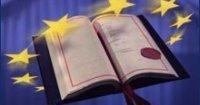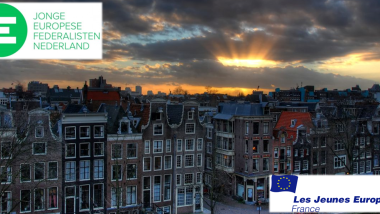At the recent Brussels summit, the Heads of State and Government gave up the constitutional objective. The European leaders have, with no doubt, displayed their will to try and preserve a considerable number of constitutional elements. But, as the French president clearly stated “by giving up the constitution, we return to the logic of the treaties”. The constitutional logic has imposed itself precisely because our leaders, under the pressure of the European Parliament and the civil society, have realized the inefficiency of the interstates logic. This inefficiency has caused the democratic deficit of the Union and stopped its political development.
the Union has to change its status from that of an international organization to that of a state subject
However, our nation-states cannot face by themselves the difficulties of our century.Poverty and underdevelopment, conflicts between nations, the supplies of energy, the climate change and the long term development are supernational political issues in need of supernational governance. In order to become an international actor, the Union has to change its status from that of an international organization to that of a state subject.
“Objective Constitution!”
In December 2000 in Nice more than 15 million Europeans marched in front of our leader’s headquarters, to demand a European Constitution. Hundreds of European civil society representatives gathered in Nice theatres coming to the same conclusion as the demonstrators: Europe needs a Constitution.
The European leaders, hidden behind walls made of concrete, were facing with calm the pressure of the citizens and were taking the decision to sign a rather bad treaty. A few months after the signature of this insufficient text, during the Laeken European Council , when Belgium held the EU Presidency in 2001, the same leaders faced their double failure: the Treaty of Nice could not allow the European Union to face today’s problems and the method of the elaboration of the European treaties - the intergovernmentalism - was not able to allow the elaboration of a better text. In order to hide the inconveniences, the leaders convoked a Convention having the purpose to rearrange and simplify the communitarian system and to answer the following question: “were we not supposed to adopt a constitutional text?” [1]
The European Convention, reuniting Parliament and European Commission representatives, national parliaments and governments and listening to the civil society, had the advantage of working under the greatest transparency. This method, close to the constituent one, was entitled to raise a high European interest, as opposed to the intergovernmental method, based on the defence of national interests.
The meetings of the European Convention lead to the drafting of a constitutional treaty: a treaty from a formal point of view and which integrated though the constitutional principle. The distance between the Europe imagined by the founding fathers and the real Europe diminished.
European Citizens for a European Constitution
The democratic political wing was unanimously considering Europe’s need for a constitution. In spite the critics - sometimes justified - brought against the text of the Constitution, the idea of a progressive constitutionality of Europe seemed to have frightened only the most radical nationalists.
The supporters of a constitutional Europe still have a majority.There are 18 countries having ratified this constitutional text. The European Parliament has numerous times expressed his support for the constitutional procedure. The surveys show that more than 60% of the European citizens are for the constitutional principle. [2]
Despite all these facts, the Brussels European Council has once again renewed the intergovernmental logic. This method, except its antidemocratic character, can bring us back to the negotiation times. The European leaders have without success tried to define only the mandate of the Conference. Nevertheless, the efforts taken by the German Presidency risk to become useless, in front of the sovereignty of some European governments. Are the important concessions to avoid the work carried by the Convention?
The conventional adventure is the most important tentative to continue the path chosen by our founders towards an independent Europe, fighting for peace and progress. We must therefore not give up the constitutional objective which allows us, for the first time in the history of Europe, to bring together the European citizens and their common future.




Follow the comments: |
|
